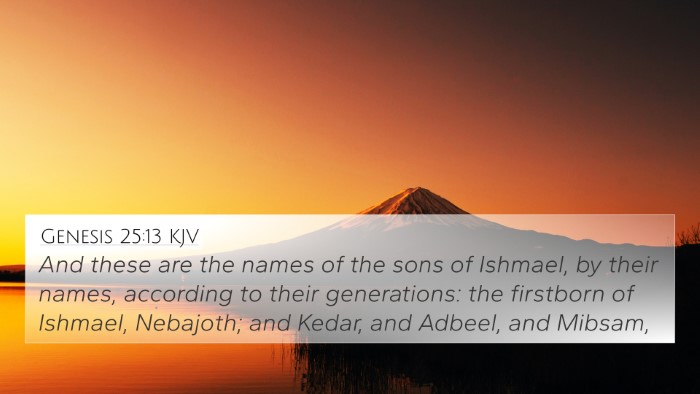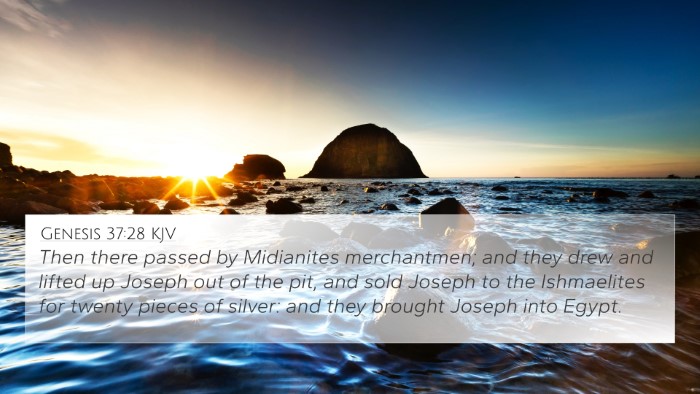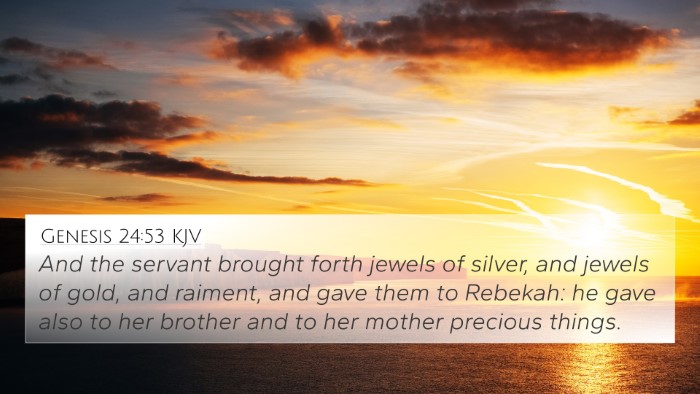Understanding Judges 8:24
The verse Judges 8:24 states, "And Gideon said to them, 'I would request of you, that each of you give me an ear-ring from his spoil.' (For they had gold ear-rings, because they were Ishmaelites.)" This moment occurs after Gideon's successful campaign against the Midianites, emphasizing his leadership and the people's response to his request for tribute.
Contextual Analysis
Judges 8:24 provides an insightful glimpse into the administrative actions of Gideon after achieving victory. Gathering spoils from war was a common practice in ancient Near Eastern cultures. Thus, Gideon's request for gold earrings from the defeated Ishmaelites correlates with practices of that time. Additionally, commentary from Matthew Henry indicates that this passage showcases Gideon's desire for honor and acknowledgment beyond mere victory.
Commentary Insights
- Matthew Henry: Explores Gideon's request for gold as a means to finance future endeavors and to symbolize allegiance. It also hints at Gideon's recognition of God's provision through victory.
- Adam Clarke: Remarks on the cultural significance of earrings in the context of ancient warfare, suggesting that Gideon's action was not merely for wealth but also symbolized a blessing stemming from God’s favor.
- Albert Barnes: Notes that the request reflects the custom of taking spoils and how it serves as a pivotal moment in establishing Gideon's continuing leadership among his people.
Thematic Connections
This verse opens avenues for thematic exploration regarding leadership, divine provision, and cultural customs of the period. It presents a scenario ripe for cross-referencing Biblical texts that depict similar motifs.
Cross-References for Judges 8:24
- Exodus 3:22: Relates to the plundering of the Egyptians, which points to God's provision for His people.
- Numbers 31:50: Also describes the taking of gold and spoils as offerings made to the Lord, emphasizing collective responsibility towards God.
- 1 Samuel 8:11: Explains the concept of the king taking a share of resources, echoing Gideon's approach of securing favor from his people.
- Genesis 14:23: References Abram’s refusal of spoils which highlights a contrasting theme about wealth and reliance on God.
- Isaiah 60:6: Foretells nations bringing gifts of gold and incense, resonating with the idea of offering gifts in response to God's acts.
- Proverbs 13:22: Provides wisdom about leaving an inheritance, akin to Gideon's foresight for the future leaders.
- 2 Corinthians 8:12: Discusses the heart and willingness in giving, tying back to Gideon's request for resources from the people.
Importance of Cross-Referencing
Cross-referencing Biblical texts like Judges 8:24 not only enhances understanding of Scripture but also reveals inter-Biblical dialogues that enrich the narrative. Each connection builds a broader theological framework enabling deeper insights into God’s interaction with Israel and His provision. By engaging in comparative Bible verse analysis, one learns to appreciate how various passages illuminate different aspects of faith, leadership, and God’s everlasting support.
Tools for Cross-Referencing
Utilizing Bible concordance and a cross-reference Bible study guide can facilitate effective study techniques by revealing thematic ties:
- Explore how to find cross-references in the Bible through indices provided in various Bible editions.
- Familiarity with Bible reference resources enables streamlined navigation through relevant passages.
- Engaging in cross-referencing Bible study methods can yield enriched discussions about faith and doctrine.
Conclusion
Judges 8:24 presents a multi-faceted view of Gideon’s leadership while illustrating broader biblical principles regarding stewardship, the importance of divine provision, and community responsibility. These themes echo throughout Scripture, establishing connections that deepen our understanding of God's work within His people. Through diligent Bible verse cross-references, believers are encouraged to uncover the interconnectedness of God’s message across time.













